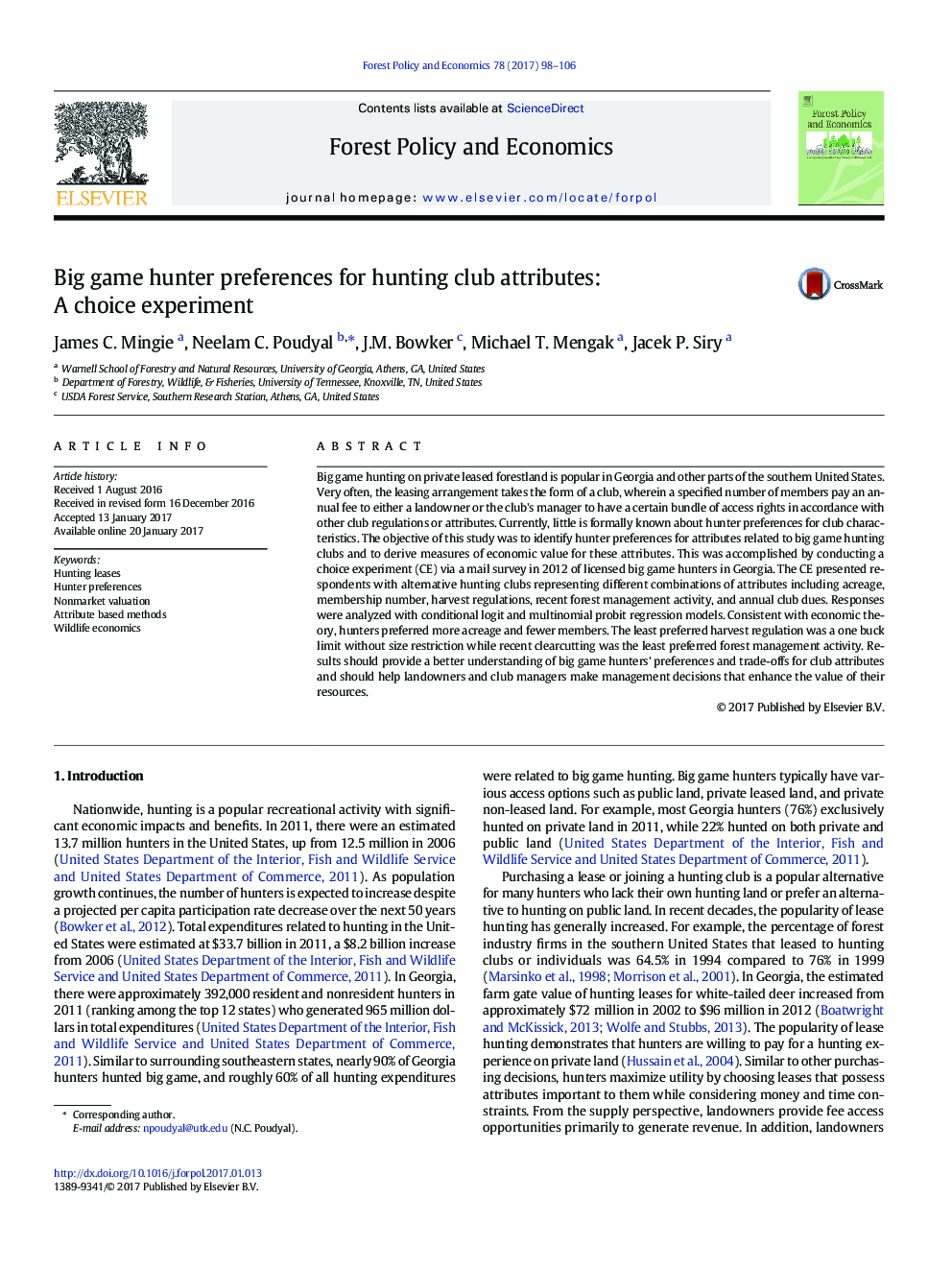| Article ID | Journal | Published Year | Pages | File Type |
|---|---|---|---|---|
| 4759771 | Forest Policy and Economics | 2017 | 9 Pages |
Abstract
Big game hunting on private leased forestland is popular in Georgia and other parts of the southern United States. Very often, the leasing arrangement takes the form of a club, wherein a specified number of members pay an annual fee to either a landowner or the club's manager to have a certain bundle of access rights in accordance with other club regulations or attributes. Currently, little is formally known about hunter preferences for club characteristics. The objective of this study was to identify hunter preferences for attributes related to big game hunting clubs and to derive measures of economic value for these attributes. This was accomplished by conducting a choice experiment (CE) via a mail survey in 2012 of licensed big game hunters in Georgia. The CE presented respondents with alternative hunting clubs representing different combinations of attributes including acreage, membership number, harvest regulations, recent forest management activity, and annual club dues. Responses were analyzed with conditional logit and multinomial probit regression models. Consistent with economic theory, hunters preferred more acreage and fewer members. The least preferred harvest regulation was a one buck limit without size restriction while recent clearcutting was the least preferred forest management activity. Results should provide a better understanding of big game hunters' preferences and trade-offs for club attributes and should help landowners and club managers make management decisions that enhance the value of their resources.
Keywords
Related Topics
Life Sciences
Agricultural and Biological Sciences
Forestry
Authors
James C. Mingie, Neelam C. Poudyal, J.M. Bowker, Michael T. Mengak, Jacek P. Siry,
